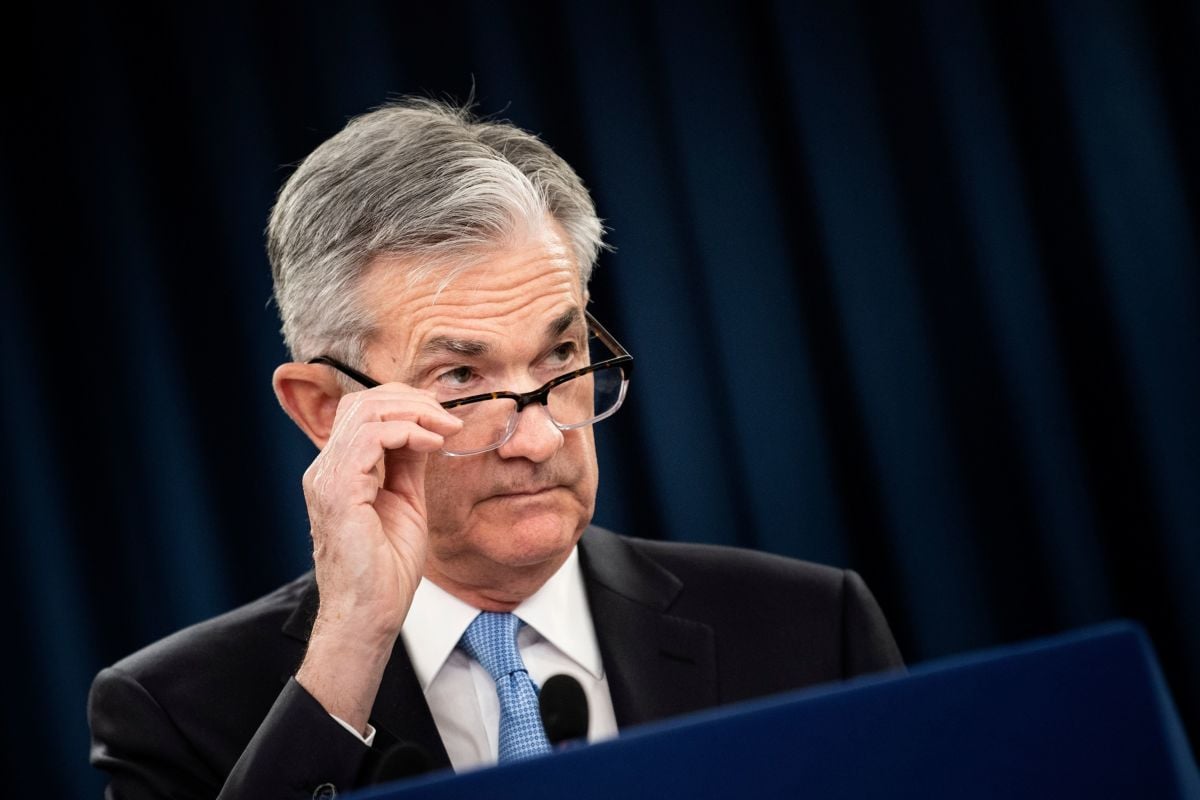Honest, paywall-free news is rare. Please support our boldly independent journalism with a donation of any size.
Donald Trump has repeatedly criticized the Federal Reserve Board for raising interest rates. He has a point; the Federal Reserve Board has raised interest rates more than was necessary to combat any potential threats from inflation. However, the way Trump makes his point, which has included berating the Fed, threatening to fire the chair, Jerome Powell (he doesn’t have the authority), and nominating two blatantly unqualified people as Fed governors, is not an effective route to lower interest rates.
Although it gets little attention from the general public, the Federal Reserve Board is an incredibly important institution. The Fed largely controls interest rates, and through this mechanism it can determine how many people in the United States have jobs.
Most immediately, the Fed sets the overnight interest rate that banks pay to borrow reserves. This rate matters because its current level and future direction determines the interest rate that people pay on car loans, credit cards, student debt, and home mortgages. When these rates are low, they encourage borrowing and spending; when rates are high, they provide a disincentive to spend.
While the Fed cannot always encourage as much spending as it might like when the economy is weak, there is little doubt that it can slow the economy by raising rates. Higher rates will discourage people from buying cars and houses, thereby slowing growth and reducing the number of jobs in the economy.
The Fed’s ostensible rationale for raising rates and deliberately slowing the economy is the concern that inflation might rise if the economy grows too rapidly and the labor market gets too tight. The argument is that in a very tight labor market, workers will be able to get larger pay increases. This will lead firms to raise their prices more rapidly. Workers will then demand still more rapid wage growth. This leads to a wage-price spiral like we had in the seventies, which led to double-digit inflation.
Many of us have argued that the Fed has been far too concerned about inflation over much of the last four decades and as a result, has often kept the unemployment rate higher than necessary. The outcome has been millions of people needlessly kept out of work and lower wages for tens of millions since the ability of large segments of the workforce to get pay increases depends on the tightness of the labor market. It is also important to note that the most disadvantaged segments of the labor market — Black and Latino people, people with less education, and people with criminal records — are the ones most affected by higher than necessary rates of unemployment. For workers who face the most disadvantages in the labor market, the Fed’s decisions to raise interest rates are a really big deal.
It’s against this backdrop that Donald Trump is now berating the Fed for raising interest rates. Trump has not been a consistent supporter of lower rates: He criticized former Fed chair Janet Yellen for keeping rates low in 2016, claiming that she was endangering the economy to help the Democrats win the election. But that aside, should we welcome Trump’s current stance on interest rates?
Trump’s threats do fly in the face of a tradition of the Fed being independent of politics. This tradition is certainly overblown by the media. The Fed is not sacrosanct; it is entirely appropriate for the president or other political figures to argue that the Fed is being too tight or too loose with its interest rate policy. The Fed is part of the government and it must be answerable to democratically elected officials.
However, we don’t want Donald Trump or Congress to be directly raising or lowering interest rates. A comparison with the Food and Drug Administration (FDA) might be useful. The FDA consists of experts who decide which drugs to approve based on evidence of their safety and effectiveness. Nonetheless, it is overseen by Congress. If it were to approve a series of drugs that proved to be dangerous, or alternatively went years without approving any new drugs, Congress would be right to question the FDA’s judgment and look to change its policy.
In the same vein, while the Fed should be making the calls on interest rates, it is appropriate for political figures to question the general direction. But the best course is to muster evidence that the decision is wrong. If Donald Trump wants to get the Fed to lower rates, rather than threatening to fire the chair, Jerome Powell (whom he had appointed), he should have his Council of Economic Advisers put together a paper arguing why inflation is not now a threat and higher interest rates will be harmful to the economy.
When it comes to appointing people to the Fed who will support lower interest rates, he would be much better off picking solid economists, who could argue the case with other members of the Fed, that lower rates would be good for the economy. His two most recent picks, Steven Moore and Herman Cain, know nothing about the economy. They would only be able to argue that lower rates would save the Trump Organization money on its debt payments.
In short, it is probably good that Donald Trump wants the Fed to lower interest rates. But it would be better if he had some idea of how to actually get the Fed to lower interest rates.
Press freedom is under attack
As Trump cracks down on political speech, independent media is increasingly necessary.
Truthout produces reporting you won’t see in the mainstream: journalism from the frontlines of global conflict, interviews with grassroots movement leaders, high-quality legal analysis and more.
Our work is possible thanks to reader support. Help Truthout catalyze change and social justice — make a tax-deductible monthly or one-time donation today.
